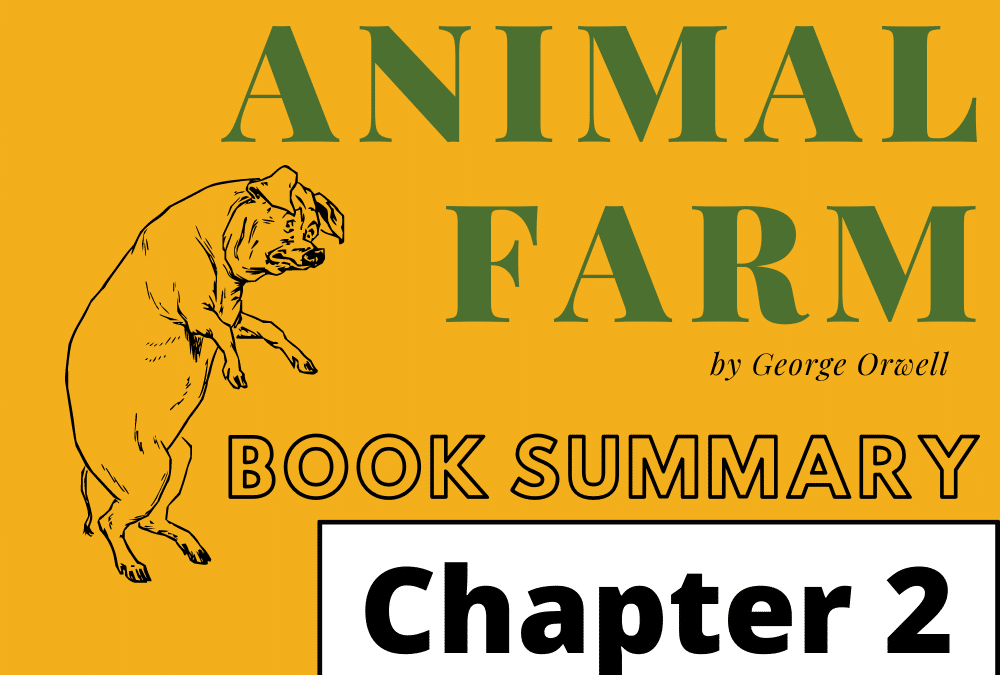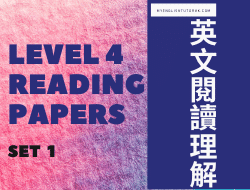Animal Farm by George Orwell Summary (Question and Answer)
Chapter Two
|
CHAPTER TWO |
|||
|
1. |
10 |
After making his impassioned speech, Old Major died just a few days later leaving the rest of the animals to begin preparing the revolution. Orwell tells his readers that the majority of the planning naturally fell on the pigs. Why was this? |
The work of teaching and organising naturally fell to the pigs because they were generally recognized as the most intelligent of the animals. |
|
2. |
10 |
Whilst Orwell tells his readers that Napoleon and Snowball were the most outstanding of the pigs, he also mentions Squealer, who we are told was a very effective public speaker and had the ability to ‘turn black into white’. What do you think Orwell means by this expression? |
Orwell tells his readers that Squealer was a brilliant public speaker and by saying that he could turn black into white, he means that the pig was capable of persuading others of just about anything, even when it was patently incorrect. |
|
3. |
11 |
Together; Napoleon, Snowball and Squealer were able to develop Old Major’s call for a revolution into a coherent system of thought which they named ‘Animalism’. Holding a series of secret meetings after Mr Jones had gone to bed, they explained animalism to the other animals but met with varying degrees of apathy and incredulity. Among the animals to pose concerns was Mollie. What two concerns did she raise and how were these addressed by the pigs. |
Mollie raised two concerns with animalism. The first of these was whether sugar will still be available for her after the revolution and the second was whether or not she would be allowed to wear ribbons in her mane as she had done until now. The pigs told her that sugar would not be available, as the animals would not have the ability to manufacture it on the farm and that the ribbons that she was so proud of and concerned about were nothing more than a ‘badge of slavery’ which pales into insignificance when compared to the rewards of liberty. |
|
4. |
12 |
The greatest opponent of animalism was Moses, the tame raven, who told the other animals about a mysterious country called Sugarcandy Mountain where all animals went after they died. Orwell tells his readers that many of the animals believed in Sugarcandy Mountain, but they all hated Moses. Why did they dislike him so much? |
Orwell tells his readers that, whilst many animals believed Moses, they all hated him because ‘he told tales and did no work’. |
|
5. |
12 |
Among the animals who listened to the pigs, two became their most ardent supporters. Who were these two animals and how did they show their support. |
The two animals to become the most loyal supporters of animalism were the two cart-horses: Boxer and Clover. They showed their support for animalism by internalising its message and repeating it to all of the other animals using short simple arguments. They would also lead the other animals in singing ‘Beasts of England’. |
|
6. |
12-13 |
Whilst many of the animals who believed in animalism thought that the revolution would be many years in the coming, it ended up happening rather suddenly one Sunday. Mr Jones had once been a good farmer but, after losing a large sum of money in a law suit, had turned to drink and further neglected his animals. What was the event which suddenly led to the uncoordinated and unplanned rebellion? |
Mr Jones and his men had failed to feed the animals who, after waiting many hours, decided that they would have to help themselves by first breaking into the store house. When Mr Jones and his men saw what was happening and tried to stop the animals from helping themselves to their rations, the animals turned on their masters and chased them away from the farm. |
|
7. |
14 |
After galloping around the farm, what was the next action of the animals following the spontaneous revolution? |
The animals returned to the farm buildings and headed straight for the harness room where they together destroyed all of the farming equipment which had been used by Mr Jones to dominate them. |
|
8. |
15-16 |
After a night’s rest, the animals awoke to discover that they were now indeed in control of the farm. The animals entered the farmhouse and took a look around the building but decided that no animals should ever live there. Rather than a residence, it was decided that the building should be kept as a museum. What did the animals do with the hams which they discovered hanging in the kitchen. |
The animals took the hams outside and buried them. |
|
9. |
16 |
After announcing that the animals had a hard day of work ahead of them, the pigs went to the farm’s front gate where they crossed out the sign which read ‘Manor Farm’ and replaced it with the words ‘Animal Farm’. How had the pigs learned how to write? |
The pigs explained to the other animals that they had learned the art of writing by studying u book which had once belonged to Mr Jones’s children. |
|
10. |
17 |
After changing the name of the farm, the pigs decided to inscribe the Seven Commandments of animalism on the wall. These seven commandments were as follows:
1. Whatever goes upon two legs is an enemy. 2. Whatever goes upon four legs, or has wings, is a friend. 3. No animal shall wear clothes. 4. No animal shall sleep in a bed. 5. No animal shall drink alcohol. 6. No animal shall kill any other animal. 7. All animals are equal.
Despite the fact that the pigs had only been learning how to write for three months, they had done a remarkably good job. What were the two mistakes which Snowball made whilst writing these seven commandments on the wall. |
Snowball made two mistakes when he wrote these seven commandments on the wall. The first of these was that he wrote one of the S’s the wrong way around. The second was that be wrote ‘friend’ as ‘friend’. |




